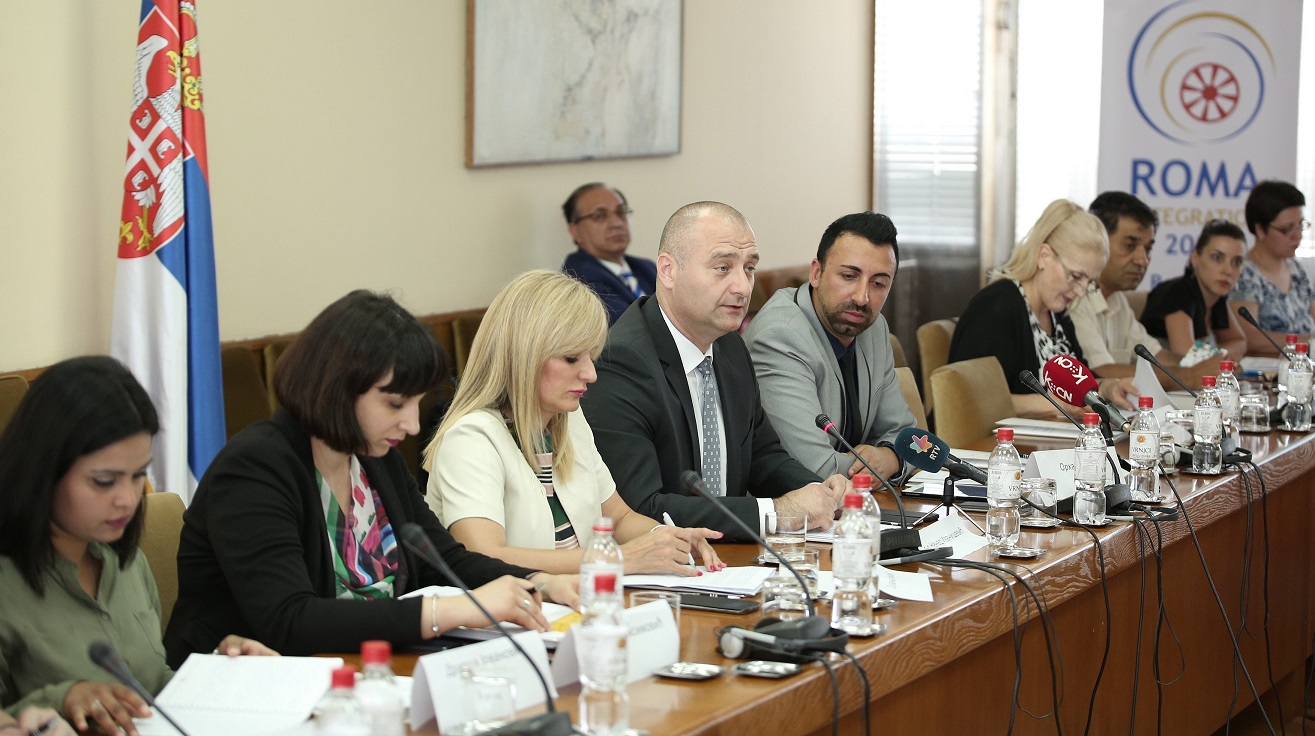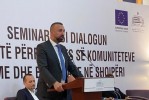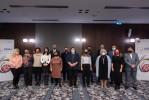Second National Platform on Roma Integration in Serbia (Belgrade, 2017)
- 13 Jun 2017
- News

2017 RS NP
The second National Platform on Roma Integration was held in Serbia today, 13 June 2017, in the main Government building Palace of Serbia, with over 60 participants, including relevant officials from the line ministries and other institutions, Roma and pro-Roma civil society organizations, representatives of international organizations and media. The meeting was organised by RI2020 together with the National Roma Contact Point (NRCP) in Serbia. The representatives of the institutions presented the 2016 annual report on the implementation of the Roma integration policy in Serbia, followed by the civil society view on the issue. This was followed by lively discussions on the underlying issues and challenges for the future.
The meeting was opened by Mr Nenad Ivanisevic, the National Roma Contact Point of Serbia, who condemned the violent attack on a Roma school boy by his peers for carrying the Serbian flag. Promisingly, Mr Ivanisevic expressed the need to work on the elimination of prejudice and hatred, particularly through the system of education.
Mr Orhan Usein, the team leader of the Regional Cooperation Council’s Roma Integration 2020 Action Team, highlighted the objectives of the National Platform, in line with the concept of National Platforms conducted in the EU Member States, and the need to improve the monitoring process by both improving the regional standards and bringing them closer to the EU processes, including by digitalizing the reporting system, as well as by strengthening the national monitoring and reporting capacities, including by establishing one-stop-shop monitoring system to feed in all the reporting requirements on Roma integration.
Ms Mirjana Maksinovic, representative of the Delectation of the European Union in Belgrade responsible for the Roma integration portfolio, Ms Suzana Paunovic, the director of the Office for Human and Minority Rights, and Ms Dragana Jovanovic Arijas, coordinator at the Social Inclusion and Poverty Reduction Unit also addressed the participants at the opening.
During the working part of the meeting, representatives of the Ministry of Education, Science and Technological Development, the National Employment Agency, the Ministry of Construction, Transport and Infrastructure, the Ministry of Health and the Ministry of Labour, Employment, Veteran and Social Affairs presented the 2016 state report in the relevant areas of education, employment, housing, health and social care. Each presentation was followed by lively discussions by the participants.
Mr Osman Balic from the Permanent Conference of Roma Associations of Citizens “League of Roma” also addressed the meeting, expressing harsh criticism to the state institutions because of the modest coverage of their measures that are still not producing tangible and significant change on the ground.
Numerous recommendations have been proposed by the participants of the National Platform to the relevant institutions implementing the state policy for Roma integration. These recommendations can be found in the policy paper prepared as a reflection of the 2017 National Platform in Serbia by the Roma Integration 2020 Action Team. The documents related to the meeting can be downloaded below.






